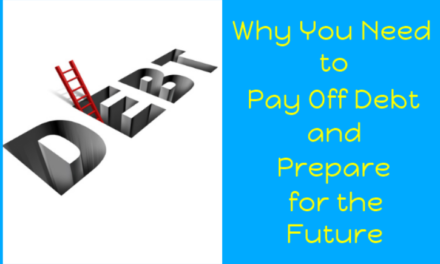Have you ever wondered what your net worth is but don’t know how to calculate it? Putting it as simply as possible, it is what you own (assets) – minus what you owe (liabilities).
Tracking your net worth is a great first step in planning for your financial future. When you know your current numbers, you know how far away you are from your ultimate goal, whatever it may be.
If you’ve never calculated yours, you may be wealthier than you thought you were! You might also find you’re poorer than you thought. Whatever the case may be, it’s good to know where you stand.
What you’ll need
You don’t need much to calculate your net worth, but there are some tools that make things easier.
To start, you’ll need something to write down all your numbers so you can add them. You could use a piece of paper or anything on your computer/smartphone that lets you enter numbers. Google Sheets (GS) is probably the best option on the computer since it’s basically a free version of Microsoft Excel. You can enter your numbers into different cells and even use the SUM function to add them all up.
You will need to know the current value of everything you own. To make things simpler when adding up all of my financial accounts, you can use Personal Capital (PC). PC aggregates all of your bank, investment, mortgage, and credit card accounts so you can see everything in one place. It will even tell you what your net worth is.
Assets
Using a PC, I start calculating my net worth by putting the total amount I have in investment accounts into a Google spreadsheet. Next, I take the total amount of cash that shows in PC and add any paper cash money we have, then put the true cash total into another cell in GS.
Thirdly, I take what I think we can sell our house for and subtract 10% from that number for seller fees then subtract our mortgage balance. The remainder is our home equity and I put that number in another cell.
Optional assets
Some people only consider their investments, cash, and real estate to make up their net worth. I think technically anything you own that can be sold could be included in your calculations.
Here’s a list of some other things you could consider assets:
- Cars (If they’re paid for). Check Autotrader to see what your vehicle could sell for.
- Any additional vehicles (RVs, ATVs, campers, etc..).
- Jewellery.
- Household items.
- Cash value of life insurance (if you have it).
- A business or website you could sell.
And anything else you can think of that you could sell. Even include scrap metal if you want. It’s up to you to decide what you want to consider as part of your net worth.
Liabilities
Liabilities are anything that you owe money on. As I stated with our house, I have to subtract the money we still owe on our mortgage from our net worth because we must pay it. If you owe anyone or any company money for anything, you need to subtract it from your net worth. Common liabilities are mortgages, student loans, and car loans.
You can add up your liabilities as we did with our assets to get the total amount. Once you know the total amount of your assets and liabilities, all you have to do is subtract the liabilities from the assets, and that is your net worth. Simple enough right?
What part of my net worth should I focus on growing?
Now that you know what everything you own is worth, you can do an analysis of how your net worth is spread out. There are three main asset classes – paper assets (investments and cash), business assets (the value/income of a company you own), and real estate.
You get to decide which of the three asset classes you want to focus on. Real estate is an excellent option for building wealth if you’ve got what it takes to be a landlord. Paper assets are the most passive option for growing your net worth because all you have to do is put money in the stock market (preferably index funds). You could also consider using a stock advisor service if you want help investing in the stock market. But always make sure to get financial advice from a professional before making any investment decisions that involve risk.
It’s probably a good idea to have your net worth split up over the three asset classes. It’s good to be diversified because it’s less likely that the value of all the assets will go down simultaneously.
Keep track of your daily spending to work towards a positive net worth
Having calculated your net worth and starting to think about how to improve it by investing your money, the final step is to make sure you budget to maximise yours. This budgeting could help you save more or pay off any debt that is bringing your net worth down.
Keeping track of your daily spending and sticking to a clear monthly budget is critical. Changing your daily and weekly habits do add up over time.
And the good news is that keeping track of your monthly spending doesn’t need to be hard if you use banks like Starling and Monzo. They will actively help you budget your money by allowing you to set savings goals in the banking app and set budget category spending goals, so you know exactly what you are spending your money on.
How to Calculate Your Net Worth: Bottom Line
Calculating your net worth isn’t that hard to do. Follow the steps in this guide, and you can calculate your net worth today!
The real work and time come in once you have calculated as you need to figure out what to do with that information and decide your net worth goal.
If you want to grow your net worth fast, you need to think outside traditional methods and consider investing your money, although professional financial advice should always be taken. Also, consider how you can budget your money to maximise the amount you can save each month to either maximise savings or pay off any debt you have.

Author: Mary Elizabeth
Mary Elizabeth is the founder of MeMoreMoney.com, a Personal Finance website that helps people make their money work harder. She is a self-taught finance nerd and featured Personal Finance Expert in GO Banking Rates and Yahoo! Finance.





